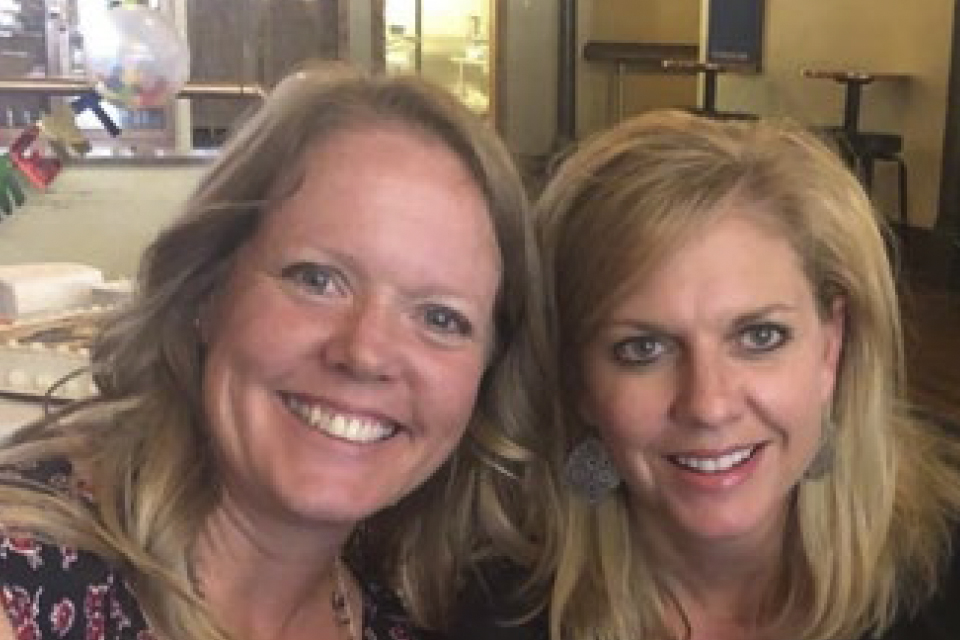“I will not go where the path may lead,
but I will go where there is no path,
and I will leave a trail,”
—Muriel Strode
These lines by Muriel Strode aptly describe the path the Department of Educational Administration and Foundations (EAF) is taking for its new Ed.D. program to prepare P–12 school and district leaders.
The program is affiliated with The Carnegie Project for Education Doctorate (CPED), a network of 95 universities worldwide seeking to offer a rigorous doctorate in educational leadership. The P–12 CPED Ed.D. breaks the mold of a traditional theoretical and research-based program in favor of a more authentic, practitioner-based approach. One of the tenets of CPED organizations is that doctoral students can pick a local problem of practice and conduct their intervention/research in a school district context. In line with this tenet, the P–12 Ed.D. program at Illinois State has recently been modified with a couple of research courses being replaced for practitioner-based finance courses that will lead students to get their chief financial business officer endorsement throughout the program.
The 2018 June CPED Convening—Evidence of Impact: Measuring Change and Changing our Measures at Florida State University—attracted several higher education professionals, including two of our CPED doctoral candidates: Laura O’Donnell and Carmen Bergmann. At the convening, O’Donnell, assistant superintendent of the Olympia School District, and Bergmann, assistant superintendent for Regional Office of Education 17, participated in discussions on the institutional knowledge presented by diverse faculty, practitioners, and students from universities across the U.S.
ISU has made great strides in creating a rigorous sequence that is rooted in both theory and practice. The result is an Ed.D. program that better prepares educational leaders for their daily challenges.”—Laura O’Donnell
The convening brought together universities at various levels of this change. Some institutions have already innovated new programming. For example, Virginia Commonwealth University offers a capstone course based on a request for proposals from area districts. The students choose a proposal, investigate, research, and present it to the district and the university as a part of their degree. It is a kind of service project but also is a way for doctoral students to get meaningful and authentic problems of practice to work on. Illinois State is modifying research courses to include practitioner-based curricula. Illinois State also includes this approach in cohort classes and is offering two courses in the same evening, so students can complete their degrees sooner.
As educators and practitioners, the doctoral students question the practicality of research/theory-based dissertations and philosophy-based courses. It was interesting to note that though the push is for contextualizing improvement science in dissertations in practice, there were considerable challenges and variances of opinion among faculty in moving down this path. O’Donnell and Bergmann attribute this push back to the nongeneralizability of the dissertations as these are contextually based, localized, and problem specific. Unless a similar demographic or problems exist, these dissertations cannot be generalized to other areas.
I would highly recommend this program to anyone considering a doctoral degree in P–12.”—Carmen Bergman
The EAF Department regularly holds discussions with the Regional Office of Education 17’s superintendents and principals to identify problems of practice that could potentially be included in program course work. Being very transparent about the needs of the district and designing courses helps superintendents recommend principals for this course. Currently, the dissertations follow the traditional format and the goal is to introduce a more action-based research to solve a localized problem of practice.
“Carmen and I, after attending the convening, had a much better understanding of the purpose of the CPED initiative, as well as the importance of it for the College of Education. We shared our takeaway with the rest of our cohort. There is a lot of excitement around the possibility of doing more contextualized and practical research. ISU has made great strides in creating a rigorous sequence that is rooted in both theory and practice. The result is an Ed.D. program that better prepares educational leaders for their daily challenges,” O’Donnell said.
“The doctoral program has been extremely beneficial for me. It has forced me as a practitioner to look at a variety of issues through a diverse lens and be more informed about policies—statewide and nationwide policies should be affecting decision-making on a daily basis. The networking and support that I have received from the professors and instructors has been amazing. I would highly recommend this program to anyone considering a doctoral degree in P–12,” Bergmann said.

